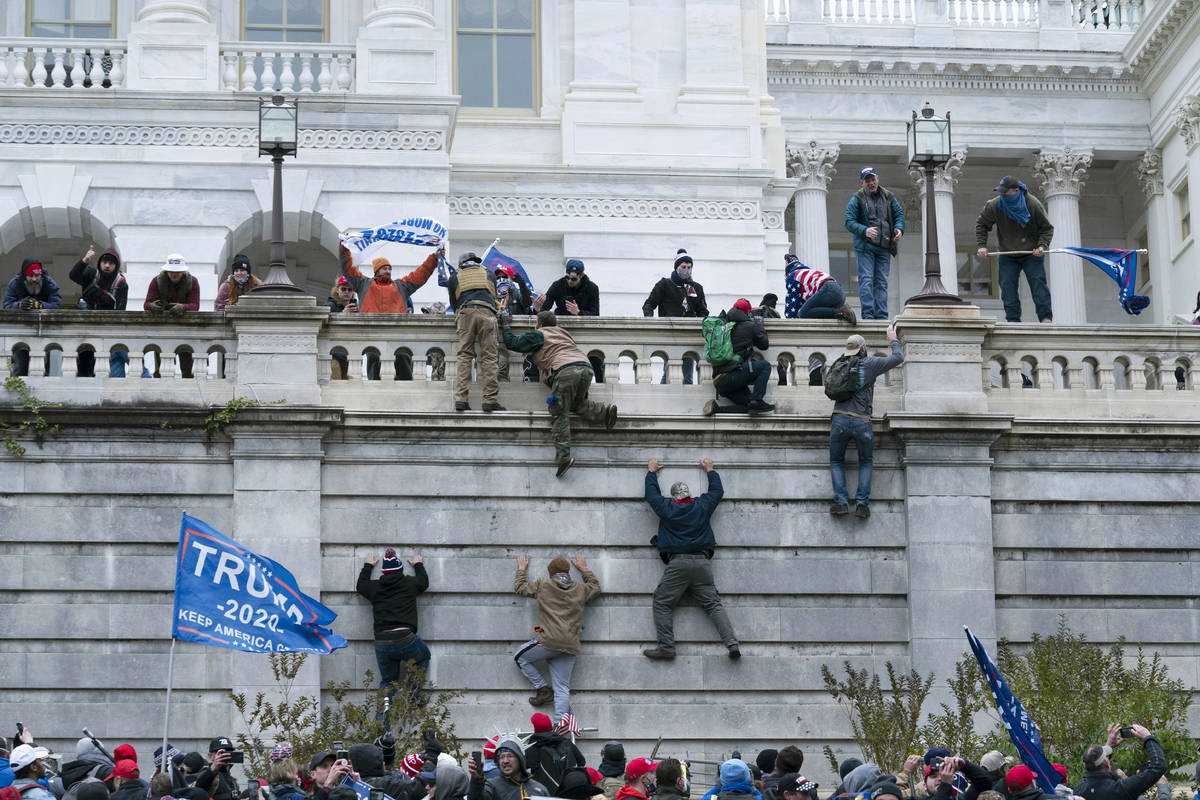VICTOR JOECKS: The case for making politics less important
Rediscovering federalism might be the country’s only sustainable way to reduce political tensions.
There’s no need to recap the horrible riot that overwhelmed the nation’s capital Wednesday. It was a tragic day for America and her citizens.
Unfortunately, that wasn’t the only political violence the country has endured recently. Black Lives Matter protests turned into riots in some cities. BLM and antifa members set up an autonomous zone in Seattle. In Portland, Oregon, antifa still runs wild.
The logistical barriers to a national divorce seem insurmountable, but discussing one might become commonplace in coming years. Our two sides don’t seem to agree on much — politically, culturally and spiritually. Even standing for the national anthem now has political overtones.
The easiest way to lower the political temperature is to make politics less important.
Twenty years ago, that idea didn’t seem so far-fetched, to me at least. Since elementary school, I’ve been fascinated with politics. I grew up listening to talk radio hosts such as Rush Limbaugh and Michael Medved. In high school, I never got the impression any of my classmates paid much mind to politics. Popular culture dominated their attention. I understood that I was the odd one.
Fast-forward 20 years, and politics seems inescapable. Social media went from pictures of pets, kids and vacations to treatises on political happenings. If you happen to disagree with one of your friends, he or she may not be your friend for long. Differences of opinion that might one time have resulted in interesting face-to-face conversations frequently devolve into online slap fights.
There are many things at work here. Social media may be the biggest one. An aside: It’s OK to turn off social media for days or weeks at a time. People are much nicer in person than they are online.
But here’s one factor most people don’t think about. As the federal government centralizes power, the stakes in federal elections keep going up.
Joe Biden’s victory means he’ll push a health care plan that would undercut and eventually destroy private health insurance. His version of the Green New Deal requires eliminating most, if not all, gas-powered automobiles and natural gas power plants. He supports forcing citizens to give up certain firearms.
All of these plans — which is just a sampling of his agenda — would be controversial in most states. Tens of millions of people think those schemes would dramatically change their lives for the worse.
It’s one thing for state pols to pursue such an agenda. If California enacts bad policies, people can leave — as they increasingly are. Or if you like high taxes, rolling blackouts and rampant homelessness, you’re free to move there.
But when the federal government imposes these policies, it’s winner take all with no feasible escape valve. Little wonder that people become so worked up about presidential elections.
There are other problems with centralizing more power in Washington, leaving aside how it makes a mockery of the Constitution. Federal mandates reduce or eliminate the ability to tailor policies to meet local desires. Plus, it limits buy-in. It’s hard to feel heard when a politician or bureaucrat 3,000 miles away tells you what to do. You can talk with local officials or try to replace them during the next election.
This is why most conservatives want to shrink the federal government. The genius of federalism is that it allows people in states with radically different policies to live in relative harmony. Embracing the concept would lower the political temperature. I wish I could say I was optimistic.
Contact Victor Joecks at vjoecks@reviewjournal.com or 702-383-4698. Follow @victorjoecks on Twitter.


















